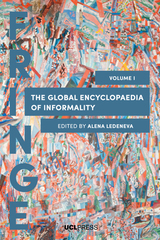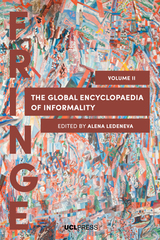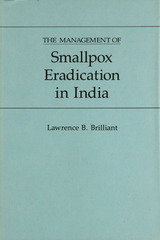4 books about Ledeneva, Alena

Captured Societies in Southeast Europe
Networks of Trust and Control
Eric Gordy
Central European University Press, 2025
In Southeast Europe, there is a growing disjunction between “the way the world is” and the world that is described by law. The informal practices that address problems when formal institutions fail can be celebrated as spaces of creative problem-solving, or criticized as spaces for favouritism and corruption. When ruling political parties control informal networks, they consolidate the hold of unaccountable actors on power, moving from state capture to societal capture.
This book presents findings from a collaborative, multidisciplinary research project. Over three years, a group of forty researchers examined informal practices in nine Southeast European states, adopting a mix of qualitative and quantitative methodologies.
This close look at the Balkans illuminates persistent deficits in state legitimacy and capacity. The evidence allows a critical assessment of “Europeanisation” processes that produce only superficial formal changes, and of ways that networks of mutual assistance turn into instruments of social control and closure.
This book presents findings from a collaborative, multidisciplinary research project. Over three years, a group of forty researchers examined informal practices in nine Southeast European states, adopting a mix of qualitative and quantitative methodologies.
This close look at the Balkans illuminates persistent deficits in state legitimacy and capacity. The evidence allows a critical assessment of “Europeanisation” processes that produce only superficial formal changes, and of ways that networks of mutual assistance turn into instruments of social control and closure.
[more]

Global Encyclopaedia of Informality, Volume 3
A Hitchhiker's Guide to Informal Problem-Solving in human life
Edited by Alena Ledeneva
University College London, 2024
A journey through the informal and taken-for-granted ways of getting things done across the world.
For a post-human hitchhiker, human life–with its anxiety, aging, illness, and constant need for problem-solving–may look unviable. Yet, for humans, the life struggle is softened by human touch, human emotion, and human cooperation.
The Global Encyclopaedia of Informality, Volume 3 continues the journey of the two previous volumes into the world’s open secrets, unwritten rules, and hidden practices. It focuses on issues of emotional ambivalence and pressures of the digital age. The informal practices presented in this volume demonstrate the urgency of alleviating tensions between continuity and all-too-rapid change and the need to tackle the central problem of modern societies—uncertainty.
The volume takes the reader on a biographical journey through elusive, taken-for-granted, or banal ways of getting things done from over seventy countries and world regions. It offers an innovative understanding of the significance of fringes and challenges the assumption that informality is associated exclusively with poverty, underdevelopment, the Global South, oppressive regimes, or the former socialist countries of Eastern Europe and Central Asia. It also maps the patterns of informality around the globe, identifies specific informal practices in a context-sensitive way, and documents their ambivalent impact on people engaged in problem-solving, on societies in which these problems arise, and on humanity overall.
For a post-human hitchhiker, human life–with its anxiety, aging, illness, and constant need for problem-solving–may look unviable. Yet, for humans, the life struggle is softened by human touch, human emotion, and human cooperation.
The Global Encyclopaedia of Informality, Volume 3 continues the journey of the two previous volumes into the world’s open secrets, unwritten rules, and hidden practices. It focuses on issues of emotional ambivalence and pressures of the digital age. The informal practices presented in this volume demonstrate the urgency of alleviating tensions between continuity and all-too-rapid change and the need to tackle the central problem of modern societies—uncertainty.
The volume takes the reader on a biographical journey through elusive, taken-for-granted, or banal ways of getting things done from over seventy countries and world regions. It offers an innovative understanding of the significance of fringes and challenges the assumption that informality is associated exclusively with poverty, underdevelopment, the Global South, oppressive regimes, or the former socialist countries of Eastern Europe and Central Asia. It also maps the patterns of informality around the globe, identifies specific informal practices in a context-sensitive way, and documents their ambivalent impact on people engaged in problem-solving, on societies in which these problems arise, and on humanity overall.
[more]

The Global Encyclopaedia of Informality, Volume I
Towards Understanding of Social and Cultural Complexity
Edited by Alena Ledeneva
University College London, 2018
Broadly defined as “ways of getting things done,” the invisible yet powerful concepts of “informal practices” tend to escape articulation in official discourse. These practices include emotion-driven exchanges of gifts or favours and tributes for services, interest-driven know-how (from informal welfare to informal employment), identity-driven practices of solidarity, and power-driven forms of co-optation and control. Yet, the possible paradox of the indiscernibility of these informal practices is their ubiquity. Alena Ledeneva’s wholly unique two-volume work collaborates with over two hundred scholars across five continents, illustrating how informal practices are deeply embedded across the globe yet still remain underestimated in policy-making procedures.
[more]

The Global Encyclopaedia of Informality, Volume II
Understanding Social and Cultural Complexity
Edited by Alena Ledeneva
University College London, 2018
Broadly defined as “ways of getting things done,” the invisible yet powerful concepts of “informal practices” tend to escape articulation in official discourse. These practices include emotion-driven exchanges of gifts or favours and tributes for services, interest-driven know-how (from informal welfare to informal employment), identity-driven practices of solidarity, and power-driven forms of co-optation and control. Yet, the possible paradox of the indiscernibility of these informal practices is their ubiquity. Alena Ledeneva’s wholly unique two-volume work collaborates with over two hundred scholars across five continents, illustrating how informal practices are deeply embedded across the globe yet still remain underestimated in policy-making procedures.
[more]
READERS
Browse our collection.
PUBLISHERS
See BiblioVault's publisher services.
STUDENT SERVICES
Files for college accessibility offices.
UChicago Accessibility Resources
home | accessibility | search | about | contact us
BiblioVault ® 2001 - 2025
The University of Chicago Press









